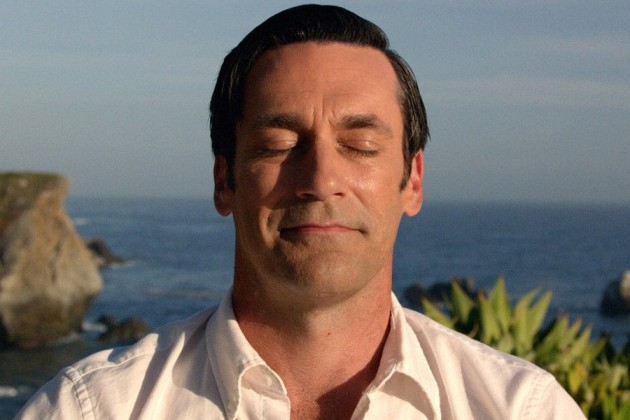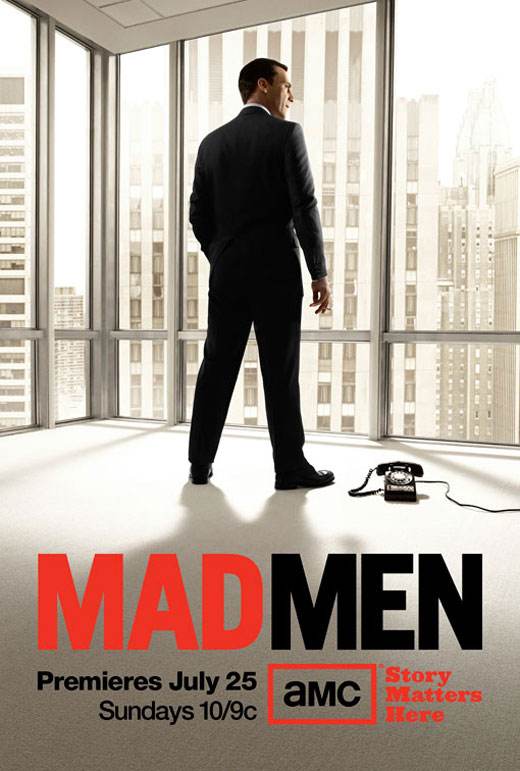
Last night at the New York Public Library, Mad Men creator Matthew Weiner made his first (and most likely last, at least for a while) comments about the series and its finale in an interview with writer AM Homes. I wasn’t able to attend the event, but I did watch the entire live-stream. And while Holmes and Weiner discussed many topics, from the life of Richard Nixon to binge-watching television, his most interesting comments were about the final moments of Mad Men, not because they specifically stated what the show’s ending meant, whether Don created the Coke ad or not (I don’t think anyone was expecting Weiner to explicitly say that one way or the other), but because they did shed some light on what his intentions were with the finale and the way in which the series concluded.
“I do not like ambiguity for ambiguity’s sake,” Weiner told Homes, when discussing the series finale and stories in general. “I do not like people who will not commit to a story, who will not commit to a meaning. It’s just that I think a lot of meaning – and stain-glassed windows will attest to this – is non-verbal. As soon as you start parsing things into words, you’re in a hole. It doesn’t mean anything.”
And despite the fact that Don and many of the other characters on Mad Men used a lot of words when giving pitches to clients, most of the series’ most important emotional moments were unspoken. Many times throughout the series (and sometimes not so subtly), the show would utilize symbols to express what the characters were feeling, or what their actions were really supposed to mean. So then, what exactly did the “I’d Like to Buy the World a Coke” ad represent?
“I did hear rumblings about people saying the ad being corny, and it’s a little bit disturbing to me,” Weiner said, touching on cynical he thinks the world today is. “I’m not saying that advertising’s not corny. But the people who find that ad corny are probably experiencing life that way and are missing out on something. Five years before that, black people and white people couldn’t even be in an ad together. The idea that some enlightened state, and not just co-option, might have created something that is very pure. And yeah, there’s soda in there with the good feeling. But that ad, to me, it’s the best ad ever made. And it comes from a very good place.”

So if Don did in fact write the ad, then we are to believe that this truly was an emotional breakthrough for him, that he used this “rebirth” of sorts to create something not to just sell Coke, but to express how he now sees the world. It seems that if Don was responsible for the ad–which is how I read the series’ final moments–then it’s only because of his new “enlightened state.” His experiences in the finale, from his phone call with Peggy to his hugging of Leonard, didn’t just create a better ad man; they helped create a better man.
Or maybe I’m just reading too much into Weiner’s words and am holding on too tightly to my hope that Don would eventually evolve into a more fulfilled person by the end of the finale, someone who had finally found peace. With Weiner’s comments and the way I initially viewed that final scene, that’s how I’m going to look at the series finale of Mad Men, but what made it such a great ending was that it allowed for different interpretations and discussions. And whether a final scene is ambiguous or not, that’s what the best endings always do: they keep us talking, debating, and wondering, long after the end credits have rolled.
What did everyone else think about the ending of Mad Men and Weiner’s comments? Has your view on the finale changed at all after what he said last night? Why or why not? Comment below and let us know.
[Photos via AMC]
 Follow Us
Follow Us



